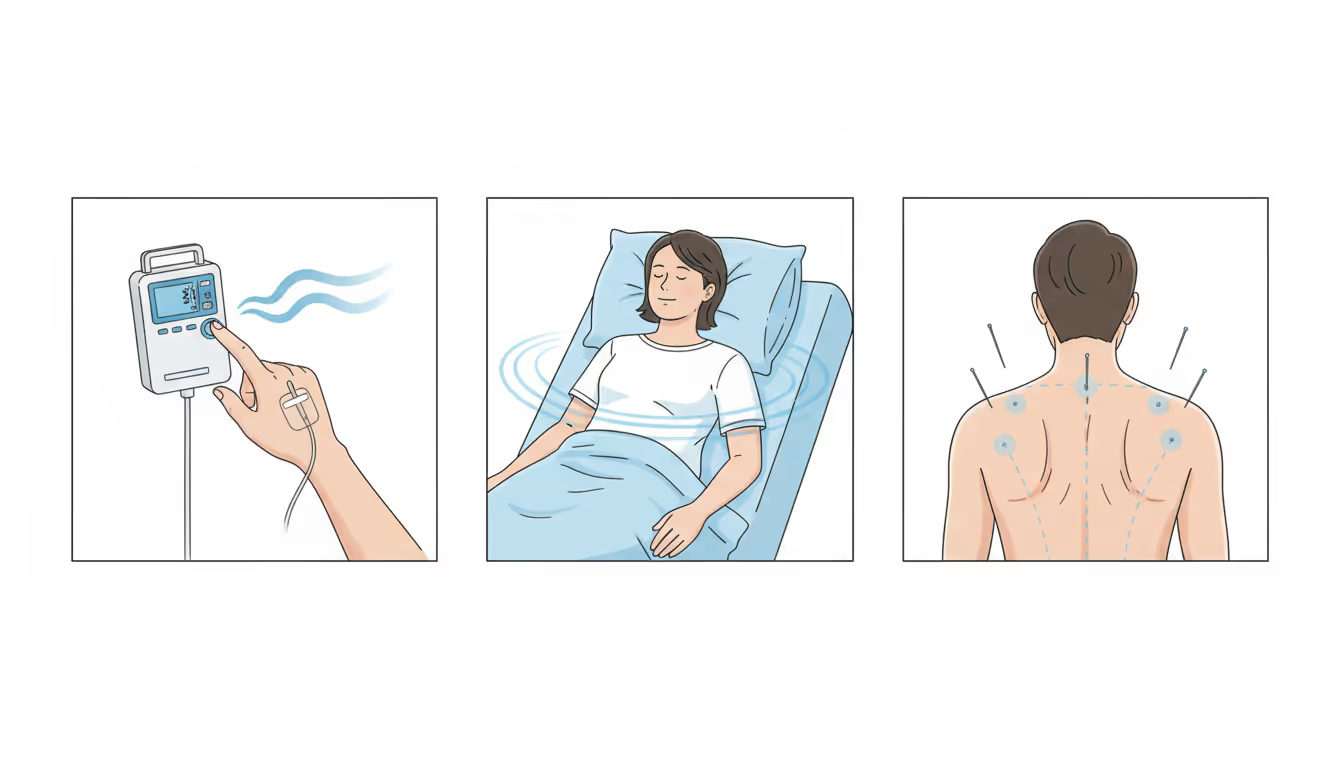
Pain relief involves administering medical treatments that ease or diminish discomfort. Typically, mild to moderate pain can be managed with medications like aspirin. However, for chronic or intense pain, opiates and other narcotics may be prescribed, often alongside analgesics. When pain stems from inflammation, steroids or nonsteroidal anti-inflammatory drugs may be employed. Additionally, some treatments can enhance the effectiveness of pain medications without increasing the dosage, altering how the brain perceives pain. While narcotics pose risks of side effects and addiction, these are generally not a concern for terminal patients. In hospitals, patients with severe pain often use devices that allow them to self-administer narcotics. Various other approaches can also be beneficial in pain management programs. For patients confined to bed, regular repositioning or using pillows for support can provide relief. Techniques such as massage, acupuncture, and biofeedback have also demonstrated effectiveness in enhancing pain control for some individuals.




